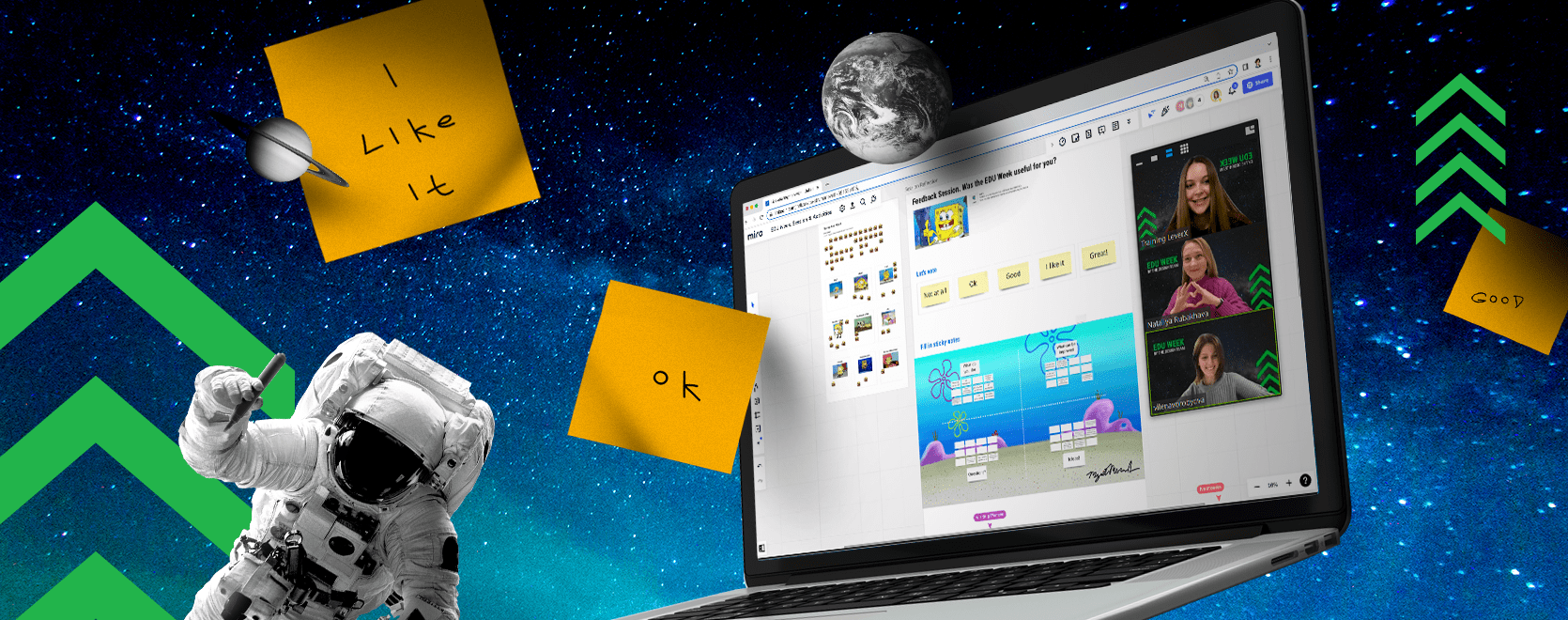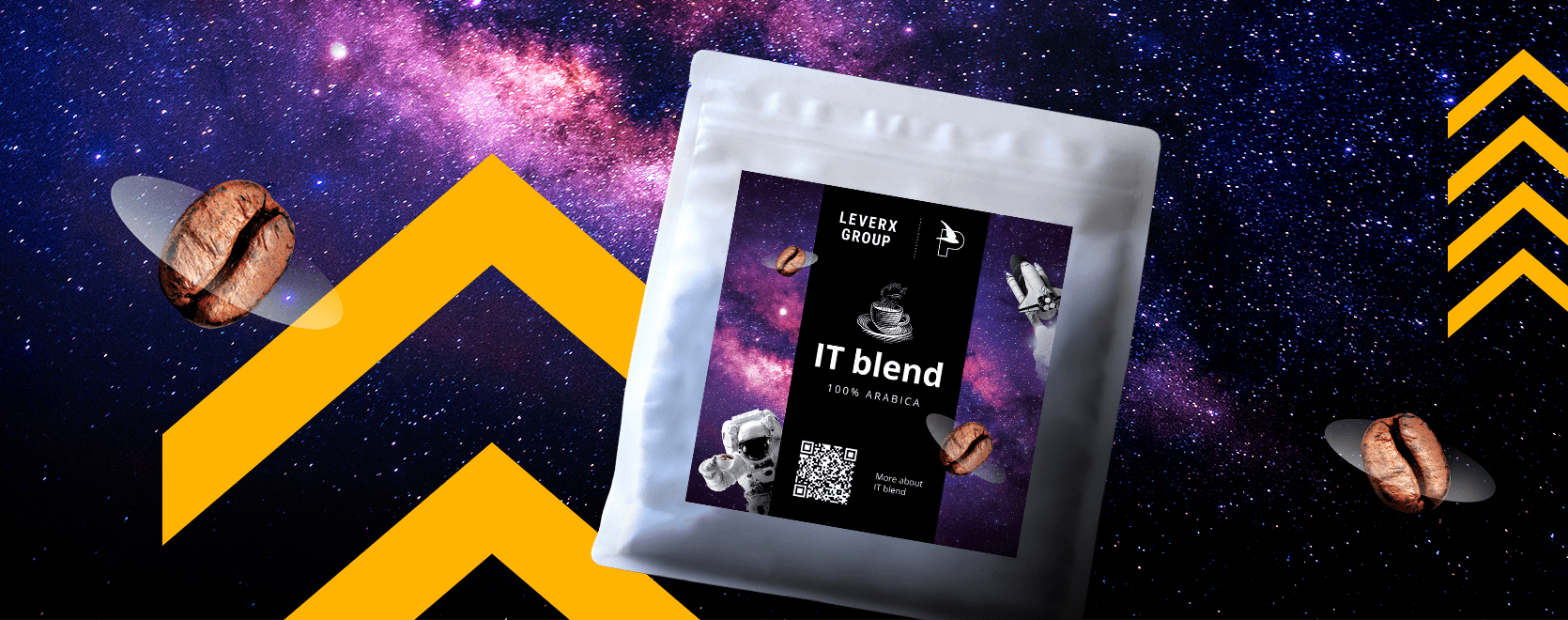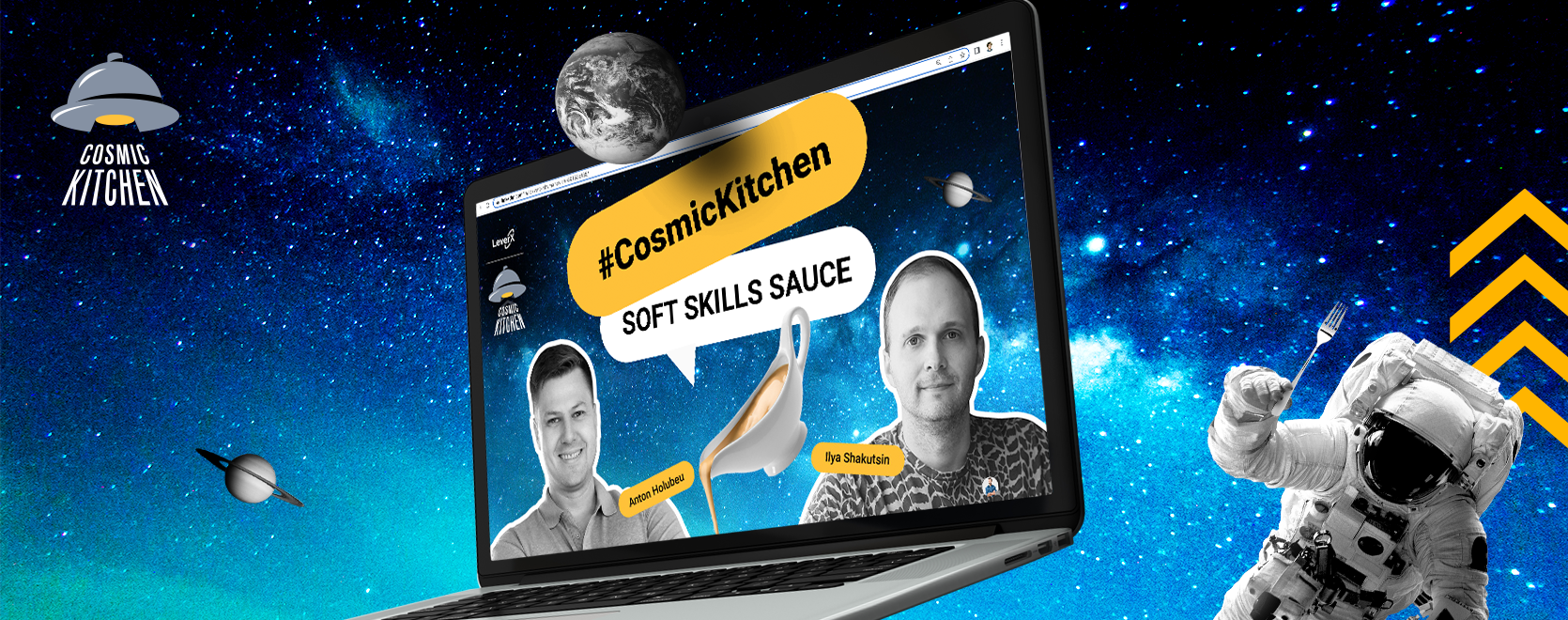
The fourth season of EDU Week took place at LeverX. The event was headlined by the design team, and the agenda for the week was the user experience research and design thinking methodology.
Our speakers, Nataliya Rubakhava, Vilena Vorobyova, Anastasiya Zhylnikava, and Natallia Heliver, covered the following topics:
- User Experience Research
- How to work with UX Researchers if you are a Project Manager / Business Analyst /
Sales Manager / Marketer / Human Resources Manager - Design Thinking Workshop
- Great retrospective with Design Thinking.
It is noteworthy that from the first day of EDU Week, our design-thinking facilitators used various tricks of this methodology and demonstrated its advantages to the participants. Each session began with warm-ups, was full of interactives, and ended with reflection sessions.
Have you missed this event? Don't worry! Keep reading to know more about the fourth EDU Week.
Day 1-2: User Experience Research and How to Work With It
The immersion in the world of design thinking started with user experience research and related topics. The speakers explained key terminology and the core of human-centered design, provided UX research, and spoke on design thinking and the reasons to use it.
The next day, speakers discussed the benefits that PMs, BAs, Sales, Marketers, and HRs can gain by interacting with UX researchers. The speakers explained why the participation of designers and UX researchers is crucial in the discovery phase. Due to their expertise, one can better understand the project, client, and users and effectively solve day-to-day tasks based on the information received.
Day 3-4: Solution to the Daily Routine And Great Retrospective With Design Thinking
The third day was the most exciting and dynamic. Our speakers covered all the crucial points about the design thinking methodology. Then they moved on to the fascinating part of the workshop — an interactive discussion of applying design thinking in practice.
Working in pairs on the Miro Board, the participants had to create a robot model to make their partner's work easier. Participants used the instructions prepared by the speakers to go through all the design stages: they got to know and interviewed each other and dived deep into the partner's needs.
After receiving all the necessary information, #leverxpeople created a robot model on the Miro Board. The robot's features had to be described with simple words or visualized with templates provided by the speakers.
On the fourth day of EDU Week, our design thinking team came up with some exciting ideas to make the daily sync and retrospective sessions more helpful.
The main one is to warm up the meeting participants before retrospective sessions and to create templates on the Miro Board. All the meetings can be improved with empathy. To help teams with this task, our speakers have developed a set of templates with instructions that can be used when holding meetings and retrospective sessions. Among them are templates in our space style. :)
Closing the fourth EDU Week, our design thinking team also shared insights on:
- How to help teams improve their performance in the future;
- How to create a safe and collaborative space to solve issues;
- How to create an emotionally and mentally healthy team environment;
- How to record team success and challenges during the creative process.
In a Nutshell
Warm and cozy 一 this is how we can describe the atmosphere of the fourth EDU Week. Each participant was actively involved in the work and discussions. The authors of the most interesting questions received gifts from the company — thermoses with the LeverX logo.
Thanks to our speakers, their helpful multi-format meetings, and all the participants for their active participation in the event.
Stay in touch to get updated on our latest news. We've got a lot of ideas for 2023! :)
-1.png)

